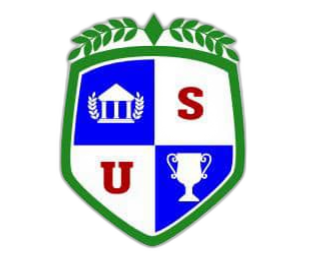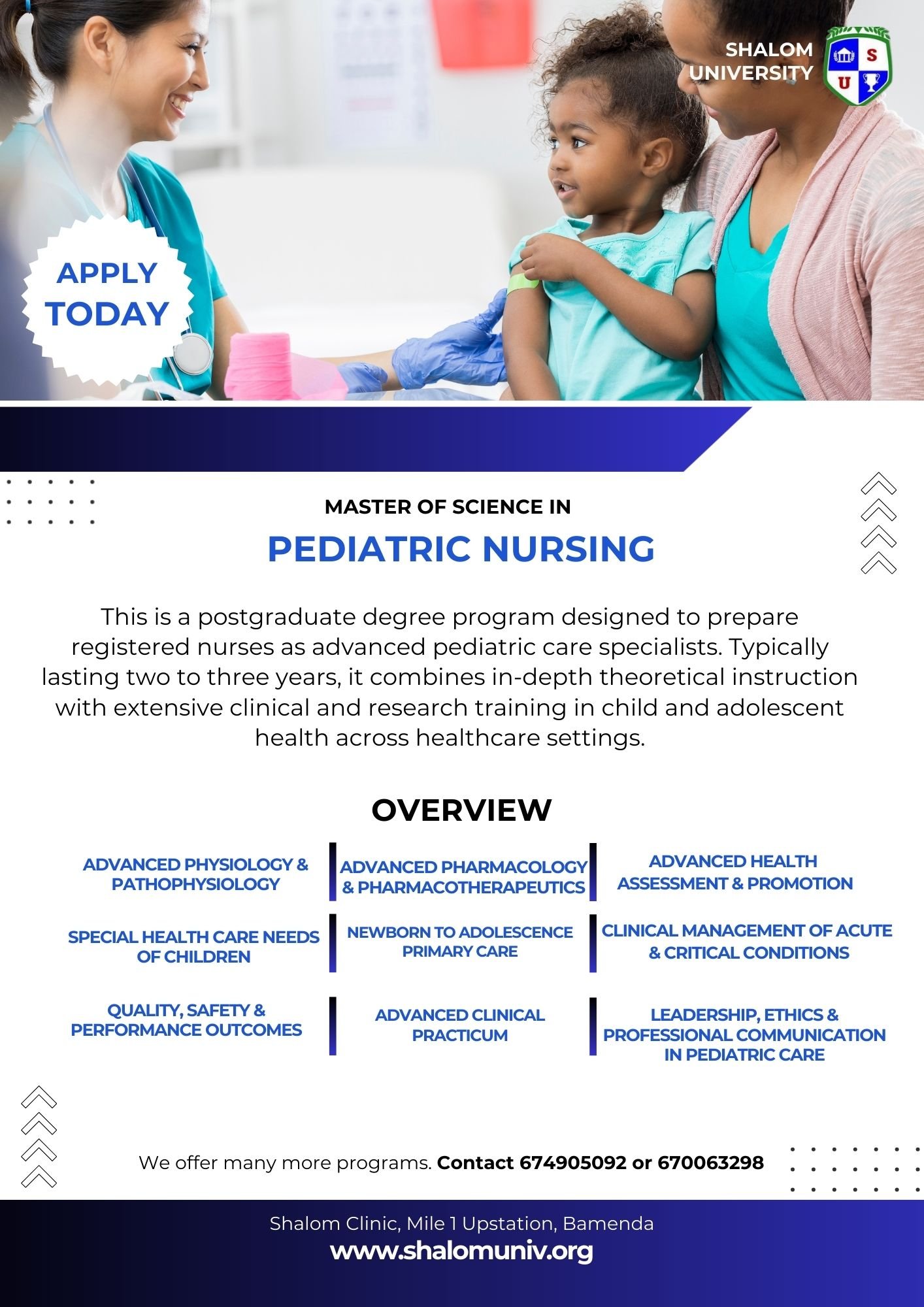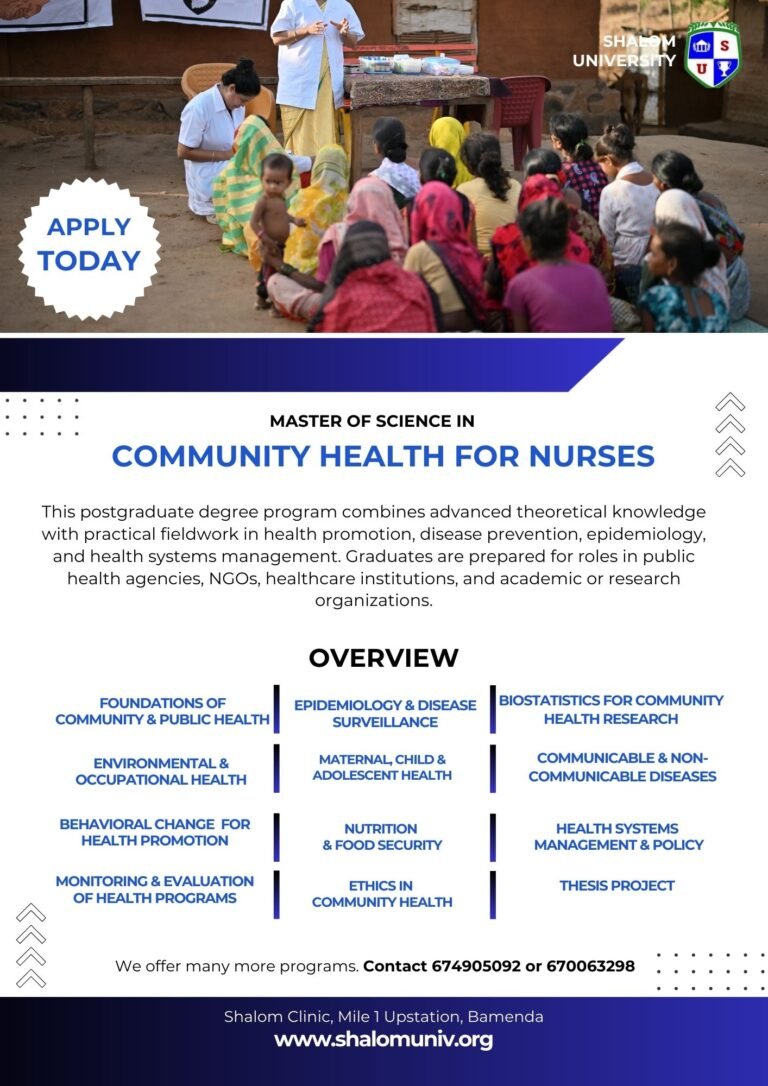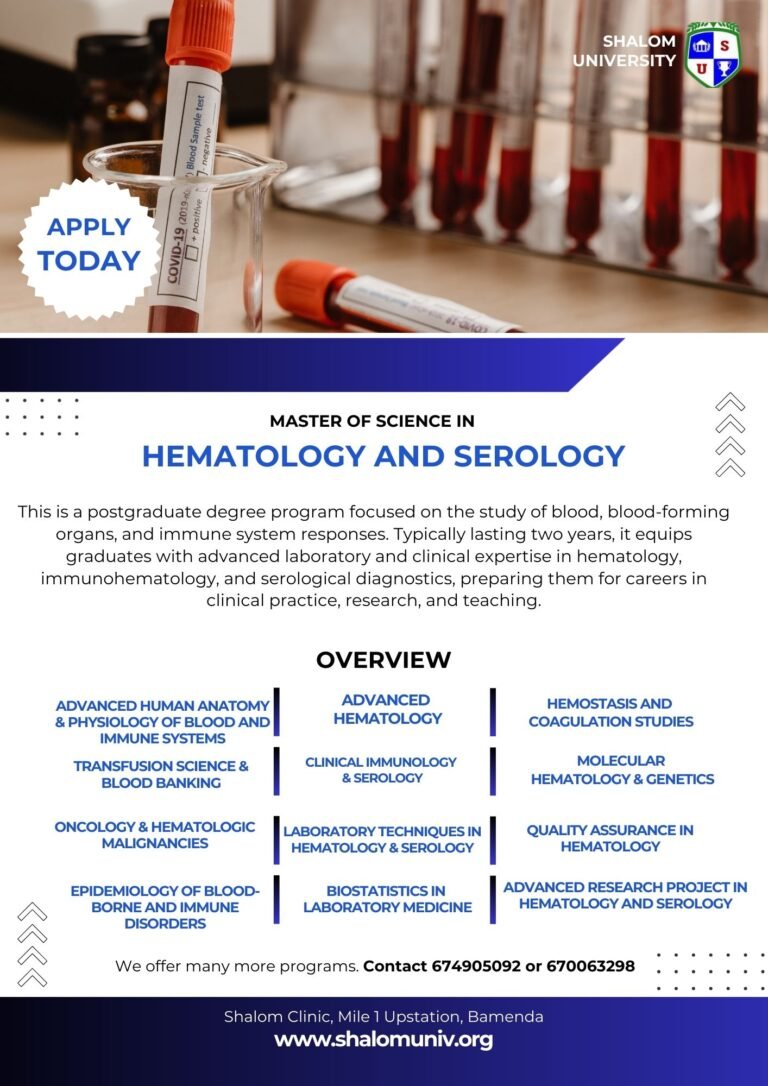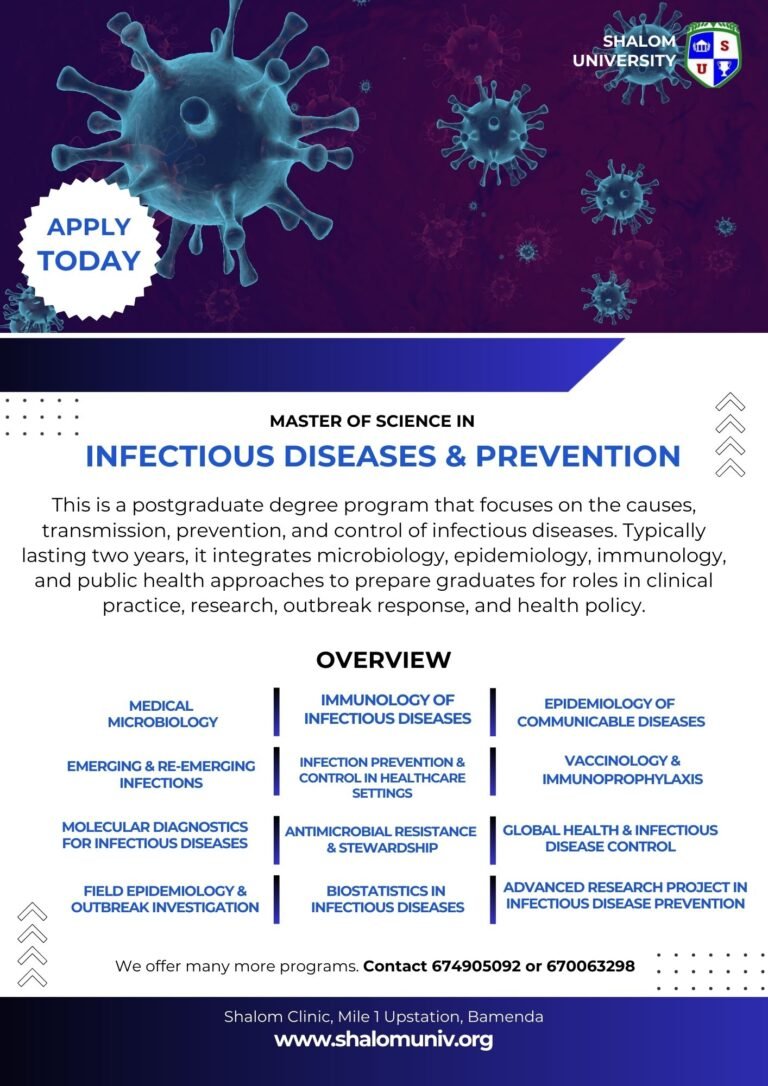Caring for children requires more than basic nursing skills—it demands specialized knowledge, compassion, and clinical expertise. At Shalom University, the Master of Science (MSc) in Pediatric Nursing is designed to equip nurses with advanced skills to provide comprehensive care from neonates to adolescents. This program emphasizes clinical excellence, evidence-based practice, leadership, and research, preparing graduates to address the complex health needs of children in diverse healthcare settings.
By integrating theoretical knowledge with practical experience, the MSc in Pediatric Nursing fosters professionals capable of delivering high-quality pediatric care, managing chronic and acute conditions, and advocating for children’s health within the community.
Advanced Physiology & Pathophysiology in Pediatrics
The program begins with an in-depth exploration of pediatric physiology and pathophysiology, helping students understand how developmental stages impact organ function, disease presentation, and treatment response in children. This foundation is essential for effective clinical decision-making.
Advanced Pediatric Pharmacology & Therapeutics
Safe and effective medication administration is critical in pediatrics. This course covers pharmacokinetics, pharmacodynamics, and therapeutic strategies for children, including neonates and adolescents, ensuring students can make informed clinical decisions regarding pediatric medication management.
Comprehensive Pediatric Health Assessment & Promotion
Students learn advanced techniques in pediatric health assessment, growth monitoring, developmental screening, and preventive care. This module emphasizes early detection of health issues and strategies to promote wellness in children across different age groups.
Neonatal-to-Adolescence Primary Care
From the newborn period to adolescence, each stage of childhood presents unique healthcare challenges. This module trains students in primary care approaches, routine screenings, immunizations, and age-appropriate interventions, enabling them to provide holistic pediatric care.
Special Health Care Needs of Children
Children with chronic illnesses, developmental disorders, or complex medical conditions require specialized care. This module focuses on strategies for managing complex pediatric cases, collaborating with families, and coordinating multidisciplinary care.
Acute & Critical Pediatric Clinical Management
Pediatric nurses must be prepared to handle emergent and critical situations. Students learn evidence-based protocols for managing acute illnesses, pediatric trauma, respiratory and cardiac emergencies, and critical care scenarios.
Symptom Management in Pediatric Illness
Effective symptom management is a cornerstone of pediatric nursing. This course emphasizes pain assessment, pharmacological and non-pharmacological interventions, and strategies to manage common pediatric symptoms such as fever, nausea, and fatigue.
Quality, Safety & Performance Management in Pediatric Care
High-quality pediatric care depends on safety and operational efficiency. Students learn quality assurance, patient safety protocols, performance monitoring, and risk reduction strategies, preparing them to lead improvements in pediatric healthcare delivery.
Evidence-Based Practice in Pediatric Nursing
Evidence-based practice ensures that pediatric care is grounded in scientific research. This module equips students with skills to critically appraise research, implement clinical guidelines, and integrate best practices into patient care.
Advanced Pediatric Nursing Practicum / Clinical Residency
Hands-on experience is crucial for mastery. Students participate in a clinical residency across hospital and community pediatric settings, applying their knowledge in real-world scenarios under the supervision of experienced pediatric nursing mentors.
Leadership, Ethics & Professional Communication in Pediatric Care
Effective pediatric nurses are leaders and advocates. This course emphasizes ethical decision-making, professional communication with children and families, and leadership strategies in pediatric healthcare teams.
Research Methods & Inquiry in Pediatric Nursing Practice
The program concludes with training in research methods, biostatistics, and evidence-based inquiry, preparing students to conduct original research that advances pediatric nursing practice. The thesis or capstone project allows graduates to contribute meaningful knowledge to the field.
Why Choose Shalom University’s MSc in Pediatric Nursing?
Shalom University combines academic excellence with practical training, modern facilities, and mentorship from experienced faculty. Graduates emerge as highly skilled pediatric nursing professionals, ready to excel in hospitals, clinics, community health programs, and academic or research roles.
Students also gain exposure to interdisciplinary collaboration, leadership opportunities, and advanced clinical competencies that set them apart in the field of pediatric healthcare.
Explore more about our MSc in Pediatric Nursing and other Master of Science programs at Shalom University.
